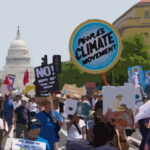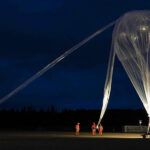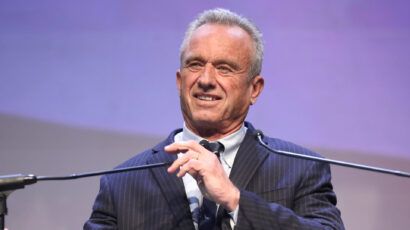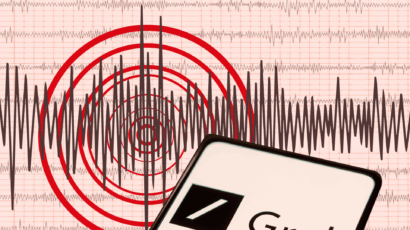Why a mindset of stubborn optimism about the climate crisis is needed, now more than ever
By Christiana Figueres | January 15, 2024
Why a mindset of stubborn optimism about the climate crisis is needed, now more than ever
By Christiana Figueres | January 15, 2024
“Whether you think you can or you think you can’t, you’re usually right”—Henry Ford
I first realized the fundamental truth in Henry Ford’s statement (see above) when, during my first press conference as Executive Secretary of the UN Climate Change Convention, I was asked whether I thought a global agreement on climate change was possible. I blurted out: “Not in my lifetime!” Those words accurately reflected the prevailing mood in early 2010. But as soon as I said them, I realized that if we were to achieve a global deal, I was going to have to change my attitude.
To begin with, I personally would have to become a beacon of possibility, modeling the determined mindset that such an agreement would need. Then I would have to work out to ever-increasing concentric circles of influence (first my team at the secretariat, then the large group of country representatives, and then beyond them to the even larger group of stakeholders), enticing everyone toward a positive mindset. The journey was long, difficult, and involved thousands of people working together in a myriad of ways—but a few years after that press conference, we secured the historic Paris Agreement on climate change in December 2015. That agreement, co-written and negotiated with 196 governments, was the world’s first (and to this day the only) legally binding business plan designed specifically to protect people from dangerous climate change. It was a moment of great hope for so many. But a business plan is only worth its salt if it is enacted in a timely manner.
So the question is: Are we executing it? Since the Paris Agreement was gaveled to order, banks have funded fossil fuels to the tune of $5.5 trillion, with $669 billion-worth in 2022 alone. Some say the figures are even higher than this, with around $1.1 trillion of bank financing going to fossil fuels in 2022. Whatever the number, it’s way too high given what we know about fossil fuels’ contribution to the climate crisis.
Global upstream investments in oil and gas exploration, extraction, and production have been going in the wrong direction and are currently on course to reach their highest levels since Paris, growing 11 percent year-on-year. Meanwhile, government subsidies for fossil fuels have also continued to rise, surging to a record $7 trillion last year. At the same time, fossil fuel company profits have reached unimaginable highs, as they’ve profited from the war in Ukraine. Unsurprisingly, the emissions that world leaders agreed to cut in Paris continue to rise, with devastating effects.
In the time since the Paris Agreement was reached, science has become more granular in its projections of the impacts these emissions will have on people and ecosystems. It’s also become more precise in its attributions. For example, the devastating wildfires in Eastern Canada during May and June of 2023 were made twice as likely due to the high level of climate pollution in our atmosphere.
Since the Paris Agreement, the real-world impacts of these emissions on lives and livelihoods have begun accelerating exponentially. With the added El Niño effect, today’s extreme heat waves, deadly downpours, and rapid ice melt are surpassing conservative scientific predictions. We have entered what scientists call the “danger zone;” we’ve gone beyond the safe operating space and are at risk of crossing dangerous tipping points in the Earth’s system.
No wonder study after study shows increases in the number of young people who are anxious about climate change and do not feel hopeful about the future. Holding onto optimism in the face of what we are experiencing is understandably a real challenge.
But before I lay out why stubborn optimism is needed now more than ever—even in light of the challenge we are facing—let me tell you another story of what has happened since Paris, which is just as true as the one above.
Since the Paris Agreement, technological progress is increasing the rate of decarbonization in the energy sector in decreasing periods of time. We have entered the exponential stage, where progress towards a number of positive tipping points that could combine into cascades of positive change is happening even faster than we thought possible.
Offshore and onshore wind technologies have gone down in cost by 60 percent and solar has reduced by 80 percent in the past decade. We are now on track to be able to supply over a third of all energy power from clean renewables, which is far more than we could have envisioned when the Paris Agreement was adopted just 8 years ago.
There’s also a revolution underway in transportation, with battery technology underpinning the next generation of advanced electric vehicles. There are already 300 million electric two- or three-wheeled motorcycles on the road worldwide, and they are displacing four times as much oil demand as all the electric cars in the world so far.

Vast swathes of bio-diverse land and sea around the world are being protected from encroachment from outside interests, with the support of local communities and Indigenous Peoples. The number of alliances, coalitions, communities, and groups joining together to change things for the better locally, globally—and across political spheres—has also grown exponentially, along with the understanding that restoration of nature and the regeneration of natural ecosystems is just as important as transforming the energy sector. In December of 2022, almost every nation in the world agreed to the Global Biodiversity Framework—which we can think of as a twin sister to the Paris Agreement—to halt and reverse nature loss globally by 2030.
So many of the conditions we need to have in place to change course and make this decade humanity’s greatest decade are now in place: Multilateral frameworks. Technological progress. Deeper understanding of the complexity of the issues and how our Earth system works. A growing community dedicated to the big mission of ensuring a livable future.
And yet.
Just when we can and should be accelerating climate action, political will is diminishing, partisan polarization is increasing, and business confidence is wilting. There are so many other things to worry about: Inflation. Fallout from the COVID-19 pandemic. Continuing horrors in Ukraine—and now a horrific new war in the Middle East. Border disputes in the Balkans and Far East. Deadly conflicts raging in Africa and South America. Short-termism. Populist and fickle politics. Manipulative algorithms. A patchwork regulatory landscape. The messy transition of global power away from the United States and Europe.
The increasing fragility of our climate—and the ecosystems upon which we rely—is a clear and aggravating factor in all of the above, which is why it needs our undivided attention. But confused policy makers, business leaders, and people from all walks of life are stuck in a doom-loop state of anxiety or despair, cannot figure out if we are moving forwards or backwards in our collective efforts, or are unable to grasp the exponential pace of change and act accordingly to support it.
Compounding this confusion, concerns over accountability—following a series of broken promises, missed commitments, and dark-money-funded misinformation campaigns to undermine and politicize progress—have created an extremely challenging landscape for leaders wanting to take action. This has led to the advent of green “hushing”—where climate action is not touted for fear it will attract too much criticism either from those who say it is not enough, or those who say it’s too much too soon.
How many of you have thought, whispered, or even stated out loud “Oh my God, we are totally screwed” when reading the latest article on failed harvests, flooded towns, or backlash on climate-related policy?
Which brings me back to the story I started with: Me blurting out something similarly pessimistic at that press conference in 2010. Our thoughts can and do reflect the prevailing mood. Less well understood is how our thoughts—or attitude—can shape the prevailing mood. Optimism is most useful in the most challenging times. It’s a candle we hold up in the darkness, not a celebration evoked by an achievement or a sign of progress.
“Mindset” hasn’t yet made it into the many climate action roadmaps that chart us out of this mess and into a livable future with cleaner air and rivers, more fertile soil, and nutritious food … but it is something I employ on a daily basis. It’s a choice—admittedly a courageous choice—and I firmly believe we have to choose it when it comes to the climate crisis. Without it, honestly, we don’t stand a chance.
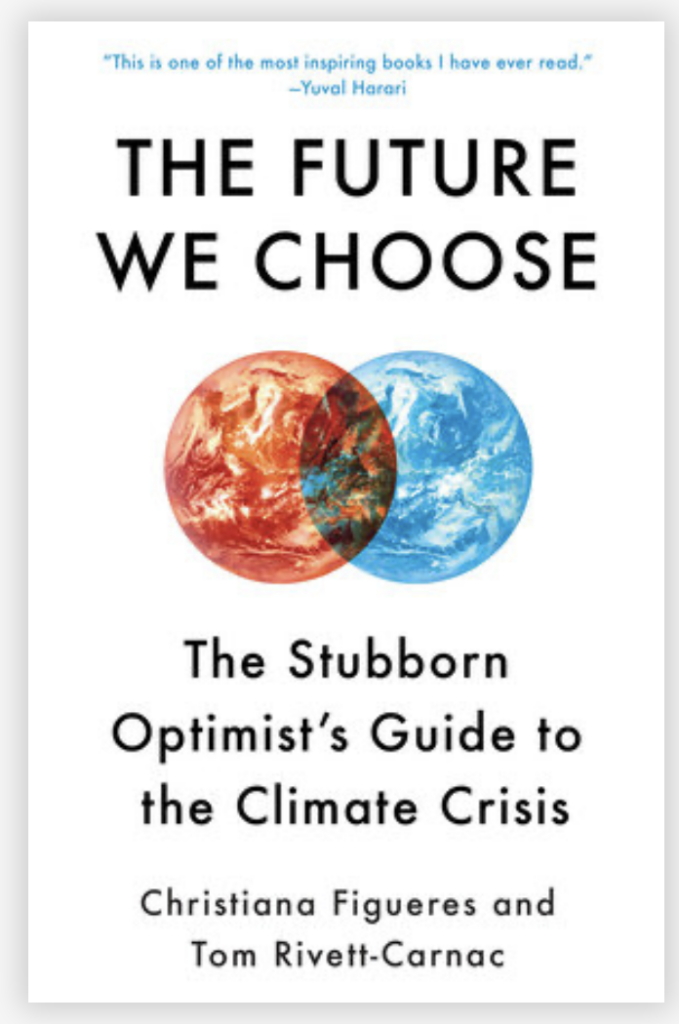
The climate crisis, the nature crisis, the inequality crisis, the food crisis—they all share the same deep root: extractivism based on extrinsic principles. This extractivism not only depletes the planet—the very soil of the Earth itself—it also depletes our human souls.
So, in order to take forward the good and necessary work to regenerate our planet and societies, to turn around our economic systems so that we can see the positive changes with our own eyes, we must also regenerate what is internally palpable to each of us.
We are going to need a nourishing and optimistic mindset to muster the courage necessary to transform economies so that human and planetary wellbeing come first. The economy, after all, is a system we humans designed. In its current form, the global economy reflects a chronic neglect of our inner world and what human beings hold most dear. We reward competition instead of cooperation. We reward environmental destruction instead of regeneration. We reward short-term gains instead of long-term peace and prosperity for future generations.
To turn this around, the invisible, internal world within each of us needs regenerating too, with compassion and solidarity for ourselves and each other. Those who believe they can succeed are usually the ones who do. The stories of what human beings have achieved by applying stubborn optimism as an input in the face of seemingly impossible challenges never ceases to amaze me. Human capacity for courageous leadership, entrepreneurial spirit, and ingenuity knows no bounds.
Now is the time to water those seeds.
Together, we make the world safer.
The Bulletin elevates expert voices above the noise. But as an independent nonprofit organization, our operations depend on the support of readers like you. Help us continue to deliver quality journalism that holds leaders accountable. Your support of our work at any level is important. In return, we promise our coverage will be understandable, influential, vigilant, solution-oriented, and fair-minded. Together we can make a difference.
Keywords: climate crisis, climate emergency, climate optimism, doomism, existential threat
Topics: Climate Change







